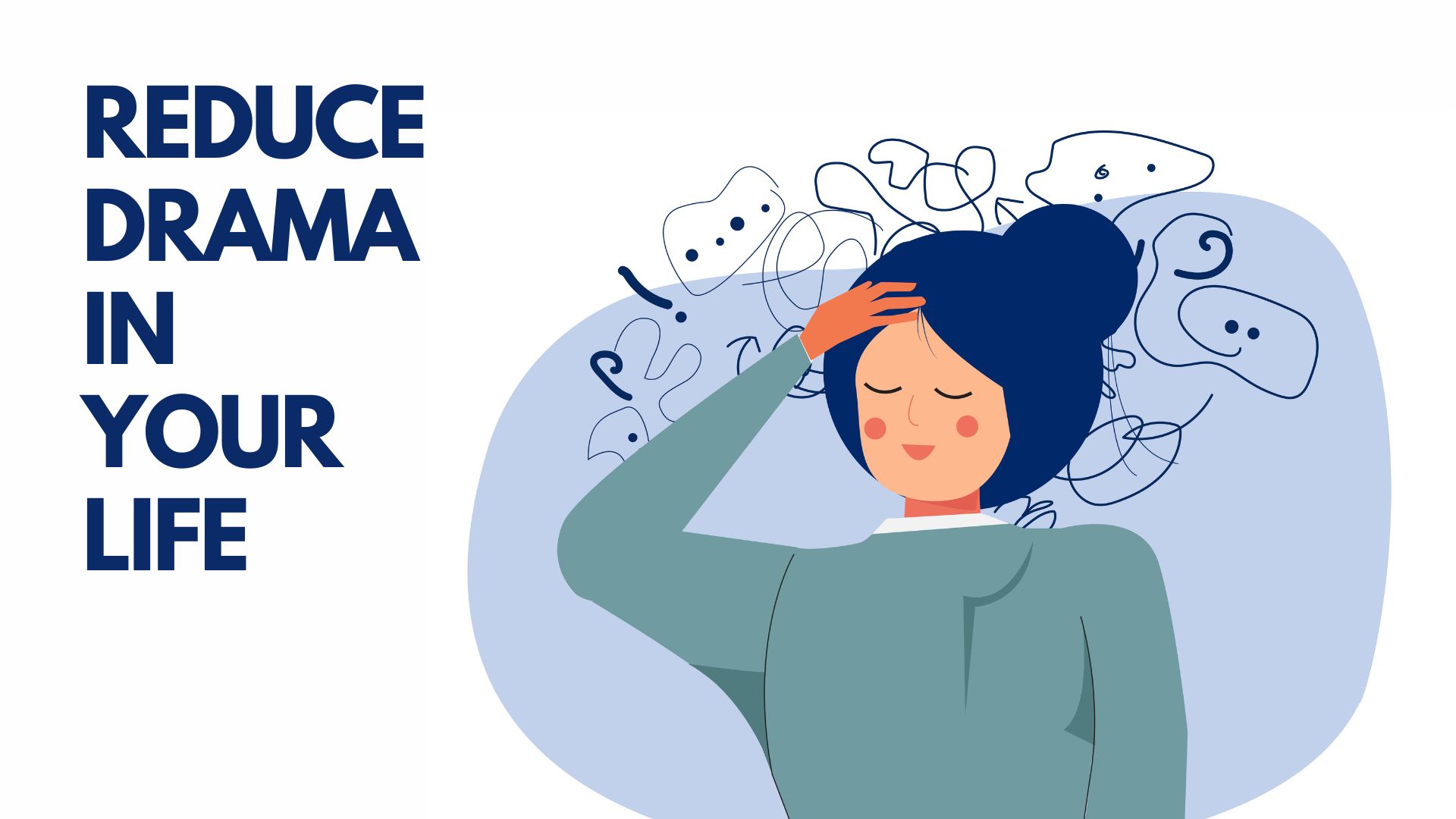Drama starts where logic ends. – Ram Charan
Drama can be fun to watch on television, but in real life, it’s often tedious, time-absorbing, and even harmful. It’s better to stay far away from sources of drama and not get involved in complicated situations that are usually meaningless and shallow, with no impact on your life but a negative one. Here is how to reduce drama in your life.
Stay focused on your life
The first step is to put your own life as a priority and the rest as being less important. You should always ask yourself how does the situation impacts you. Are you involved? Should you get involved? Are you a participant and, if not, do you want to be? Usually, the answer will be no.
Stay focused on the things that could have an impact on your life. For example, if there is drama at work that you are already involved in, you might have to do something about it. But if it involves a couple of colleagues, try to keep your distance. Once roped into the drama, you will find facing more difficulties. Before getting involved, always ask yourself if you want to deal with it all. If not, run in the opposite direction!
Keep busy with meaningful things
An oft-quoted idea is that “Idle hands are the devil’s workshop; idle lips are his mouthpiece,” a quote that refers directly to the problem of drama, as well as similar problems. It suggests that it’s not a good idea to keep yourself unoccupied for too long, as anything might tempt you into getting involved with the gossip.
Instead, focus your attention on more interesting, more fulfilling pursuits. Do the things that truly bring something into your life. Do fun things, constructive things, like creating, writing, working, developing skills, hanging out with friends… There are so many options. Keep busy, and it will be much easier to steer clear of situations that are sure to bring you nothing but harm.
You can’t fix everyone, can’t fix everything
Often, people get involved in drama because they feel they can solve it. They can fix the people involved and set them on the right path. They can resolve the problem itself and ensure that everyone is on track. But this is rarely true. Drama is usually more complex than it seems and, unless everyone involved is fully cooperating, you will not be able to resolve things, much less fix what’s going on with the people involved.
Beyond this, it’s rarely a good idea to go in trying to resolve a situation or expecting that you can fix people. You can’t. You can’t get them to do something they don’t want to do or try to carry the situation on your own back. It teaches others not to take responsibility and often makes everyone around you blame you, even if you were not responsible for what is going on. Instead, try to stay in your own lane and let people resolve their own problems. If they ask you for help, ponder what you want to do, but don’t try to solve a situation that is not yours to solve.
Intervene if something’s wrong, but don’t overstep
When you see drama, it’s not that you should not intervene if you feel something is wrong. You should not remain a bystander if you see something you find unjust or dangerous. However, it’s also important to know where your boundaries lie.
Overstepping can bring you more trouble than it’s worth. There are some situations when you do have a duty to get involved: if you are the teacher (or tutor), the manager, the parent, or responsible for the people having the drama in some other way, you probably have the standing to do something about it.
Admit your mistakes
Admitting your mistakes is not easy but it’s a great antidote to the drama. When you accept that something went wrong, you take away the chance that others might try to expose you for these errors. Making mistakes is normal, and admitting them can help prevent drama and also allow you to find better ways to manage different situations in the future.





